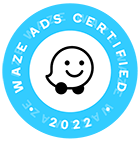
By: Richard Rutigliano, PriMedia, Inc.
Preparing for the unexpected creates resilience
Many readers will recall Donald Rumsfeld’s comments in 2002, “There are known knowns. There are things we know we know. We also know there are known unknowns. That is to say; we know there are some things we do not know. But there are also unknown unknowns, the ones we don’t know we don’t know.” He was, for the most part, rephrasing a business and psychological theory known as the Johari Window Model.
There are numerous business, knowledge and communications strategies based on the Johari Window Model, which categorizes mental and operational processes into what you know, what you don’t know, what you do not want to know (blind spots), and what you cannot know or predict. Understanding how each of these categories relates to your operations can help you plan your business strategy to manage the crises and challenges that will, inevitably, come your way.
The Johari Window predated Donald Rumsfeld’s statement by about 50 years, and the phrase “unknown unknowns” has been used in the military and at NASA for decades. The basis for the Johari Window and its variations over the years is that focusing on your experience (the knowns) helps you minimize the risks of the unknown and makes your business operations more resilient.
The Known Knowns
The known knowns are comprised of your education, experience and facts. These are the things you know you know: how to repair equipment, schedule staff and run your business; your customers and their service preferences; your payroll, overhead, and marketing budget, and most of the other thoughts pinging around your head all day. In other words, the details upon which you make most business decisions.
You also know there are challenges that arise at some point every year, and sometimes at the same point each year (like clockwork, unfortunately), with regard to staffing, truck maintenance, low cash flow cycles, delayed or unpaid invoices, and the like. However, because the risks are “known,” you can plan for them so they don’t set your business back.
The Known Unknowns
No one person is expert at everything, which is why you work with consultants, lawyers, accountants and branding partners to fill in what you know you don’t know. When it comes to your operations, these types of “known unknowns” are part of the mix.
There are also “known unknown” risks. You may be aware that there’s a risk of rising prices, but you don’t know how high they’ll spike. You “know” to expect winter storms, but you don’t know how severe they will be – are you looking at business boosting blizzards, politely spaced out over the winter, or are you facing the weeks of sub-freezing temperatures and insufficient fuel supply of a polar vortex?
While you may not know the level of risk, you can still have strategies in place. There’s a reason hedging and insurance plans fall under the umbrella of “risk management.” You also have, or should have, communication programs in place: emails, phone chains, social media announcements and text messages that are ready to launch or can be quickly activated when it is imperative to reach all or most of your customers in a short period.
The Unknown Knowns
While the previous categories are relatively straightforward, this one is trickier. The “unknown knowns” are your blind spots. They can be things you don’t want to acknowledge, or that others know about you that you don’t. Rumsfeld left this one out of his quote, but it is one that is important for you to contemplate.
Some “unknown knowns” are issues and situations where you underestimate the odds of them occurring in your company. “Yes, we know that sexual harassment is an issue in other companies, but it couldn’t happen here,” would be one. A belief that “fuel stocks are strained, but we have relationships with our suppliers, so we would never face a supply shortage,” is another. Unfortunately, so is, “our employees are all vetted, they would never steal from us or our customers.”
Blind spots such as these could be very costly if you are wrong. As unlikely as you may think they are, your company should consider their possibility and have a plan of action … just in case.
Unknown Unknowns
You don’t know what you don’t know. This maxim needs to be included in all future strategies, because there is almost always a monkey wrench heading your way. The “unknown unknowns” fall under the adage, “Man plans, God laughs.” The COVID-19 pandemic exemplifies the concept of “unknown unknowns.” No one, except perhaps a handful of infectious disease pathologists, envisioned a situation where most of the world went into quarantine, businesses were shuttered, and working from home became the norm.
How does one deal with a situation they can’t imagine? We all found that out: by adapting, and quickly! It helps, of course, to have open lines of communication, a strong relationship with employees and customers, and agile business software that can be modified to respond to your new situation.
What’s in Your Crisis-Preparation Toolbox?
The bottom line for almost all these scenarios is to have a plan in place and partners who “know what you don’t know” and can help you to manage any challenge that arises. Are these tools part of your company’s strategies to deal with the unexpected?
In any crisis, a company’s communications capabilities are its first line of defense. While not every situation requires a full-blown, public relations firm’s top-of-the-line crisis communications strategy, there is a lot of power in a well-timed, sincere response. Even – or especially – when no TV news cameras are involved, a phone call, email, or text could prevent a potential customer relations nightmare. Can you quickly and easily pull up a customer’s service history and notes from your smartphone so you can speak directly and knowledgeably to their concerns? Can you send a text or email message to a single customer – or all your customers – from your account management portal?
Your backend software needs to be as flexible as possible to enable you to act effectively. For “known unknowns” like a power outage or high levels of service calls delaying response times, you can have pre-written social media, email and text messaging. For issues regarding individual customers, having their complete account data – not just the current situation but all the account details, including last service, length of time as a customer, payment history, even the names of family members – can make a big difference. Of course, for the completely unexpected, the “unknown unknowns,” you’ll need to be able to work across communication channels, with updates sent via email and text, on social media platforms, and posted to your website. If your communications platform does not provide this ease of access, then updating it should be at the top of your preparations list.
Depending on the situation, you might choose to launch a digital ad campaign. While you could opt for broad-based messaging going out to your community at large, one of the benefits of programmatic advertising is that it can directly target your customers without compromising security or divulging personal identifying information. Your customers’ email addresses are encrypted, so the programmatic platform does not track them directly, but can still deliver your message to any device attached to those email addresses. These targeted messages can be timed around email blasts or promotions sent through the postal service and continue for a few weeks after your digital campaign to extend your reach.
Is your website up to date? How easily and quickly can you get a custom web page or home page pop-up developed and launched? This will often require your web manager’s assistance. Is the company in charge of your website responsive to your needs? When your phones go down, a blizzard slows your response time, or a pandemic shuts down your in-office operations, can your web manager update your site quickly enough to keep customers calm and keep you in control of the situation? If these simple updates cannot be completed in a reasonable amount of time, you could fall behind in a crisis.
Your customer service needs to be on point in these situations as well. Upset customers don’t like being put on hold, asked the same questions repeatedly, and given a vague “someone will be in touch” answer. Beyond that, your CSRs need to know how to defuse an irate caller without losing their own temper. If you haven’t provided customer service training in a while, this should be part of your preparation strategy. Even the most seasoned CSR, including family members and managers, could use a refresher. Your trainer can focus on high-stress situations, incorporate role-playing and other interactive learning exercises, and (discreetly) address specific concerns you might have about individual team members. A prepared CSR can do more than calm an unhappy customer. He or she can stop problems before they start.
Coming full circle to the solutions to handling your “known unknowns,” having experts in your corner is often the best way to handle the “unknown unknowns” as well. Your attorneys, accountants, business consultants, public relations professionals, web developers and marketing agency have their own suite of “known knowns” and it is their job to help you do yours better. That includes preparing your business for the unexpected and jumping in when an ‘unknown’ arises.
Richard Rutigliano is President of PriMedia, Inc., an integrated marketing and communications firm specializing in the home energy sector. He can be reached at 516-222-2041 or rrutigliano@primediany.com.















